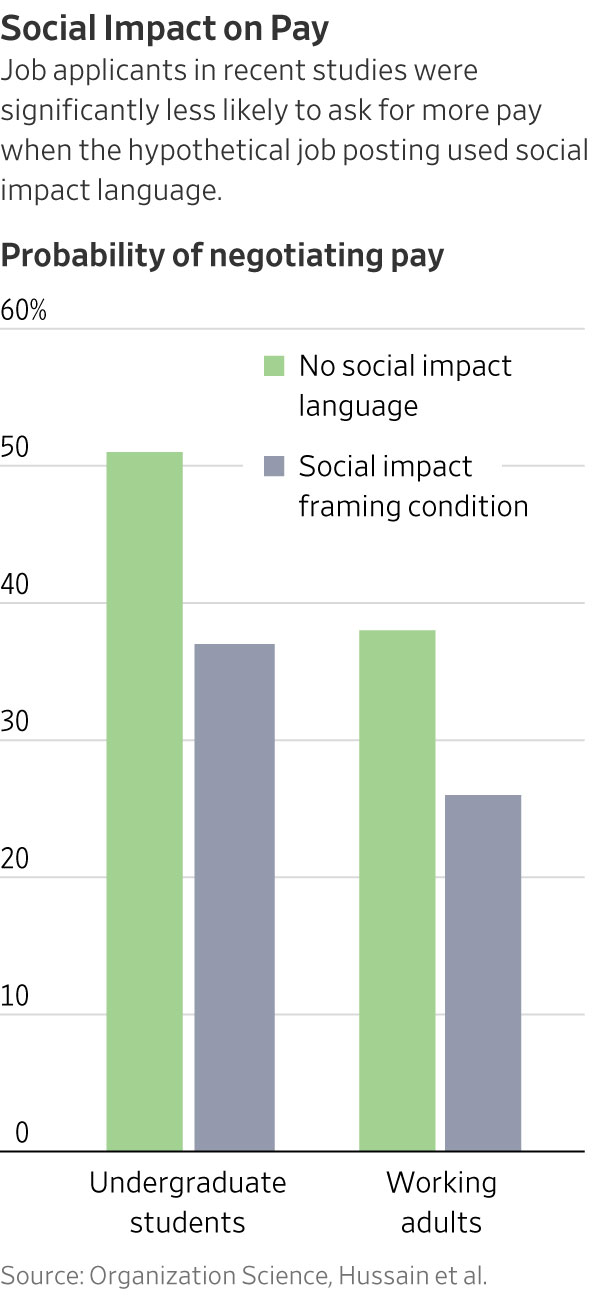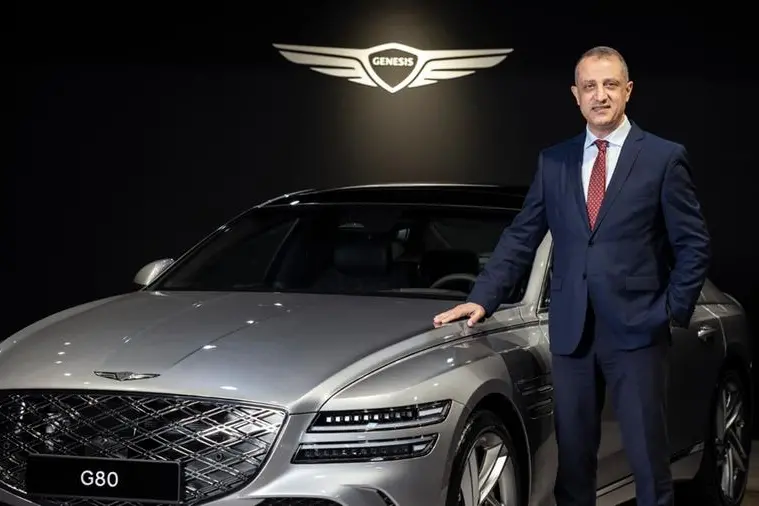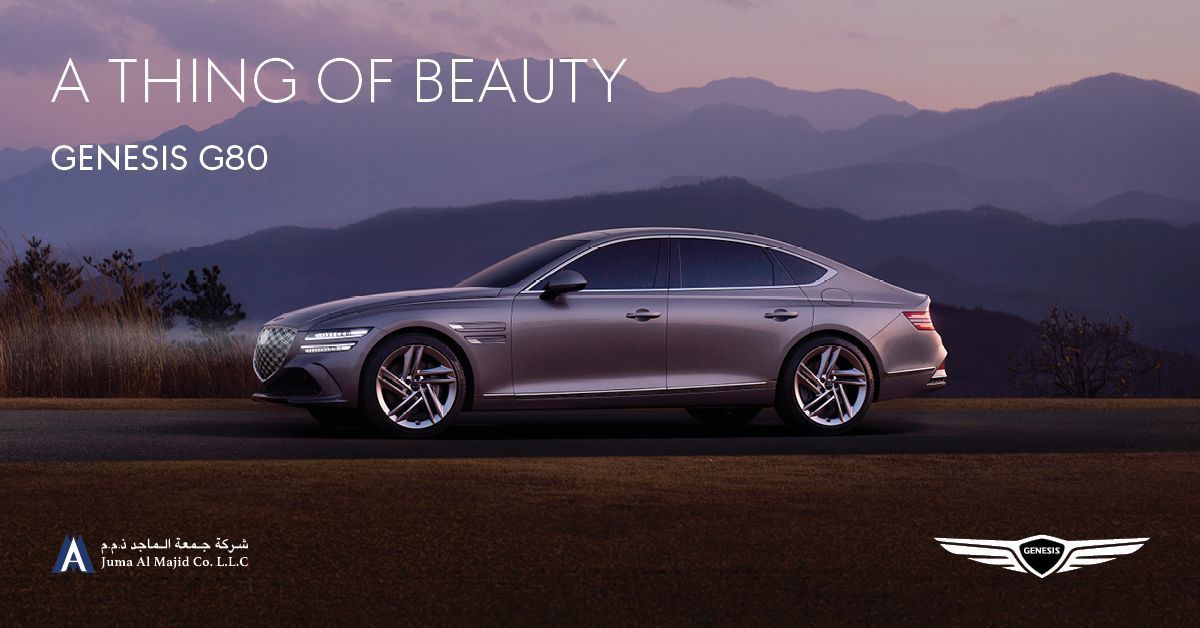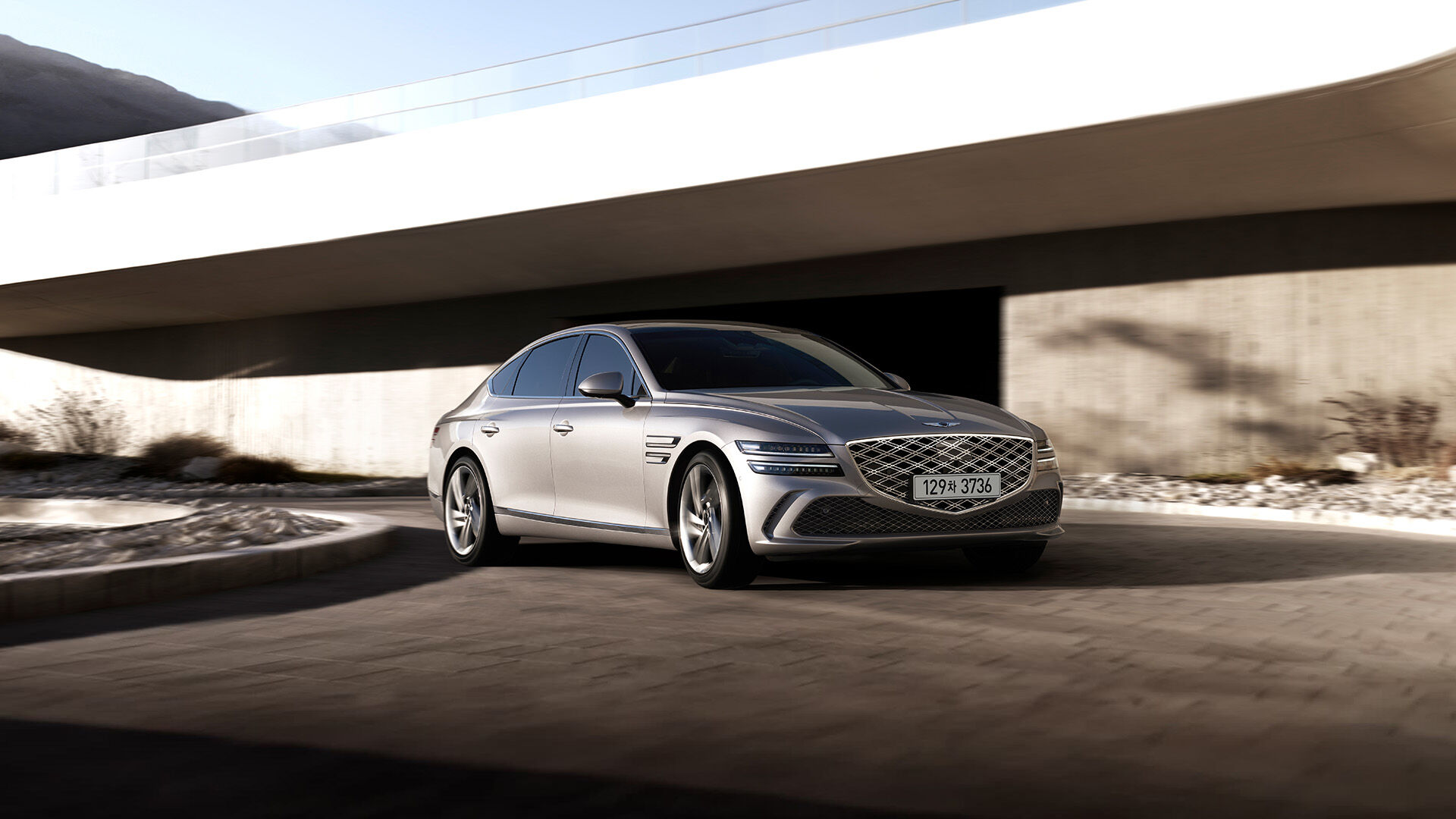Job Applicants Can Support a Company’s Mission—and Still Ask for More Money
Research suggests that would-be employees fear that negotiating for a higher salary will make them look selfish
Want to work for a company that says it makes the world a better place? Be careful—you might feel guilted out of asking for higher pay.
Job postings today are peppered with language promoting an organisation’s mission, its purpose and the importance of making an impact. But those positive messages can have a chilling effect on applicants. In several studies, my colleagues and I found that the social messages in job postings make people think it would be a bad idea to ask for more money. They fear that the managers will think of them as selfish, or that company values make salary requests taboo.
Great reluctance
To be clear, the problem isn’t that companies advertise broad social initiatives—known as social impact framing—or that they want employees to genuinely care about the work itself. Longstanding research has even shown that corporate social programs can benefit employees, who enjoy a greater sense of motivation and meaningfulness when their work demonstrably makes a positive difference.
But this notion of higher purpose can make applicants wary of seeking higher pay.
My colleagues and I tested this idea over five experiments that measured how applicants handled salary negotiations with different companies: Some were described with phrases such as “mission orientation,” “higher purpose” and “giving back,” while others weren’t. We didn’t say whether the company was a nonprofit, engaged in charitable giving or could afford higher wages; our focus was on the language or framing used to describe the work, regardless of the company’s business model.

The results were remarkably consistent. Across the studies, job candidates exposed to social impact framing told us the company would see it as crass or inappropriate to ask for material rewards like a higher salary—so they avoided negotiating for more.
In the first study, 392 participants provided open-ended responses as to whether they would ask for higher pay at hypothetical companies, along with their rationale. Those who were given social impact framing were 32 percentage points less likely to say “yes” to negotiating. In addition, the group who gave negative responses was more than twice as likely as the control group to use phrases such as “doing so would be taboo,” “make you look selfish if you asked,” and “would likely make the organization less interested in hiring me.”
In the second and third studies, we tested the effect in real-world contexts. In one, we asked 438 undergraduate students whether they would ask for more money for a purportedly real on-campus job opportunity. In the other, we asked 1,525 online workers recruited from a crowdsourcing marketplace to bid for a purported writing-related task.
In each case, the odds of negotiating were approximately 42 percentage points lower when the work was framed in social impact terms. Survey responses showed that this was driven by workers’ perceptions that they would be violating the organisation’s expectations for employee motivation by showing interest in higher pay.
Our fourth study replicated the effects above, while our fifth study showed that effects held across a range of industries—from education to financial services.
A matter of perception
Why did this happen? We theorise that the applicants assumed that managers and companies had motivation purity bias—thinking that employees who are interested in a job’s material rewards care less about the work itself. And, indeed, previous research has shown that this bias does affect managers’ decisions.
That means few applicants want to be seen as the person who gives priority to money over more lofty, altruistic goals. You either love the work itself and want to help others or care about material rewards like higher pay. It can’t be both.
But that attitude is simply romanticising. Research shows that people often do their jobs better when they get a combination of extrinsic rewards like high salary and intrinsic ones like idealism about a mission.
The consequences of holding back on salary requests can be huge. Previous research has shown that fear of asking for even a small increase in starting pay can cost people hundreds of thousands of dollars over the course of a career. For companies, skimping on pay because of misguided beliefs can lead to missed opportunities to boost performance and productivity.
How to overcome the bias? Employees should do research on companies to see how the businesses react to salary requests. For their part, companies can create greater pay transparency, use objective criteria to set salary and train managers to watch out for bias.
Passion for work is wonderful. But we shouldn’t romanticise it as the only legitimate reason to take a job.
 Copyright 2020, Dow Jones & Company, Inc. All Rights Reserved Worldwide. LEARN MORE
Copyright 2020, Dow Jones & Company, Inc. All Rights Reserved Worldwide. LEARN MORE
Chris Dixon, a partner who led the charge, says he has a ‘very long-term horizon’
Americans now think they need at least $1.25 million for retirement, a 20% increase from a year ago, according to a survey by Northwestern Mutual
The G80 Sport makes its entrance, displaying dynamic design details and elevated automative capabilities.
Juma Al Majid LLC, the exclusive dealer for Genesis in the UAE, has launched the G80 – a cutting-edge luxury sedan. Merging tradition with innovation, this model embodies Genesis‘ relentless pursuit of superior design, state-of-the-art technology, and unmatched luxury.
The new G80 marks a significant milestone in introducing Korean automotive excellence to the UAE, highlighting the brand’s commitment to providing exceptional experiences.
Meticulously crafted, the redesigned G80 adheres to the ‘Athletic Elegance’ design philosophy synonymous with Genesis. This luxury vehicle features refined details and cutting-edge specifications, combining comfort and style to elevate every driving experience to new heights.
“The debut of the all-new G80 in the UAE market propels our vision to converge advanced technology and refined elegance”, stated Suliman Al Zaben, Director of Genesis, UAE. “This launch is a step forward for Genesis in the UAE market and strengthens our efforts to offer ultimate luxury, innovation, and unique design to our incisive customer base.”
With a new dual-mesh design, the G80’s exterior enhances the sophisticated appearance of the Two-Line Crest Grille, paired with iconic Two-Line headlamps featuring Micro Lens Array (MLA) technology. This highlights Genesis’ commitment to harmonizing advanced technology with elegant design. The five 20-inch double-spoke wheels exude a dynamic aesthetic, resembling sleek aircraft lines, complementing the car’s parabolic side profile. Rear diffusers conceal mufflers adorned with distinctive V-shaped chrome trim inspired by the Crest Grille, embodying an eco-conscious ethos in today’s technology-driven era.

The G80 reinforces Genesis’ design philosophy in its interiors, inspired by the uniquely Korean concept of the Beauty of White Space, integrated with state-of-the-art technology to create cosmetic brilliance for users. The 27-inch-wide OLED display seamlessly combines the cluster and AVN (Audio, Video, Navigation) screen in a horizontal layout, extending to the center fascia, showcasing its flair for innovative technology. The touch-based HVAC (Heating, Ventilation, and Air Conditioning) system offers ease of control, while the redesigned crystal-like Shift By Wire (SBW) ensures a comfortable grip, infusing a sense of luxurious convenience.
With its dual-layered Crest Grille and expanded air intakes, the G80 Sport package delivers a dynamic and sporty spirit. Exclusive interior options, such as a D-cut steering wheel and carbon accents, enhance its sporty allure. Equipped with Rear Wheel Steering (RWS) and Electronic Limited Slip Differential (E-LSD), the G80 Sport 3.5 twin turbo model is built for stable control during high-speed maneuvers.
Fitted with advanced safety and convenience features, this luxury sedan includes Remote Smart Parking Assist 2, Lane Following Assist 2, and a Fingerprint Authentication System. The three-zone HVAC system provides customized climate control for all passengers. With two powertrain options – a 2.5 turbo engine delivering 300 horsepower and 43.0 kgf·m of torque, and a 3.5 twin turbo engine producing 375 horsepower and 54.0 kgf·m of torque – superior driving dynamics ensure a silent and luxurious driving experience.

Chris Dixon, a partner who led the charge, says he has a ‘very long-term horizon’
Americans now think they need at least $1.25 million for retirement, a 20% increase from a year ago, according to a survey by Northwestern Mutual





















